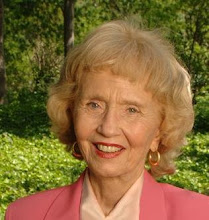
This blog post is taken from an article printed in the UTD Coaching News Issue #031 - July 2009.
I recently returned from the first World Congress of International Positive Psychology Association in Philadelphia. It was definitely worldwide with 1600 participants from 54 countries. It was a superlative learning experience for me to participate in what I view as a major achievement in our current world!
Personally, I had read a brief mention about the Positive Psychology Master degrees being offered at Penn Statue which focused on adults capitalizing on their strengths. Intuitively I said “This is what I have been doing for 20 years, I help clients through a process to understand and work on their strengths, not fix weaknesses.” I bought the text books the Penn professors were using in their college courses and have read and followed the research. I bought a membership in the IPPA (http://www.ippanetwork.org/) for $90.00 per year and the researchers who conduct top notch web seminars are outstanding. If you join now you can download much of the conference information.
Positive Psychology had its birth pains only about 10 years ago. This was when Martin Seligman, a University of Penn Psychologist became President of the American Psychological Association (APA). At this time he shared his vision and for a new approach in psychology: He said he wanted to take the focus beyond what ails the human mind to conditions that help human beings flourish. He saw the field only helping people move from a minus five to a zero. His question was “Now how do we get from zero to a plus five?” He strongly felt mental health should be more than the absence of mental illness and that happiness could be learned. Working with other like minded professionals, Seligman has successfully promoted an explosion of research on happiness, optimism, positive emotions and healthy character traits.
For me, this conference demonstrated the rapid and notable worldwide response in spite of countless naysayers. What is really important is that the participants and other speakers represented the positive acceptance from those in the psychology field, also medical and organizational behavior, and educators (elementary, high school, college). There were several sessions focusing on Evidence Based Coaching (of which our Dr. Hicks is an authority).
Frankly, this conference was not a focus on the warm and fuzzy feeling good approach, but serious and in-depth research on the Science of Happiness.
What will be the direction forward for the future of IPPA? Seligman closed the conference by naming three plans for the future: 1. Positive Education of young people (This is the focus of a proposal I am currently writing to get positive career planning stared in the middle schools), 2. Physical Health factors, and 3. Positive Neuroscience for which he had just received a sizeable grant for scholarships.
The major product or goal of the IPPA is for 51% of the world to be flourishing by 2051. The research is now to determine and define what we mean by flourishing. My goal is to live long enough to experience it, since I plan to become a centurion – our fastest growing age group. How is that for positive thinking?
The next IPPA meeting will be in Great Britain in 2011! Can’t wait!

My own Positive Psychology website: http://www.FoolQuest.com
ReplyDeleteI love the thought of "The Science of Happiness". This would make a great subject for kids to study at school!
ReplyDeleteHow different would the world be if we studied this instead of studying wars in history?
Nice article and the dream for the future is a fantastic one, but achievable with passion.